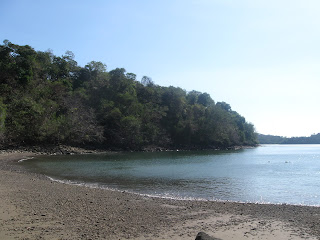The million dollar question.
Kevin and I are slowly trying to live more sustainably. We grow more food, don't own a clothes dryer (though I've yet to cede other appliances; like the washer or oven), go to bed early (less electricity), and generally are trying to simplify our consumption. Water is tricky. We actually do live up against a dry creek bed. In Sandy's wake, it's no longer dry. In fact, years ago when I first moved in there was usually about three feet of water.
Mike knows of creeks near his house. He's hypothesizing how long he could treat the water to make it potable. What about when you run out of tablets? What about when you run out of propane to boil water? It's really hard to bring water to a boil with a wood-burning fire.
This conversation is reminding me of Octavia Butler's Parable of the Sower. This novel is one of the most realistic dystopias I've encountered. Infrastructure has imploded and those surviving are living communally off land. They're studying Indigenous recipes to make flour from acorns and seed-saving. The novel is dark, but also hopeful and beautiful.
 |
| The beautiful irony-- when there's so much water-- but can you drink it? |

No comments:
Post a Comment